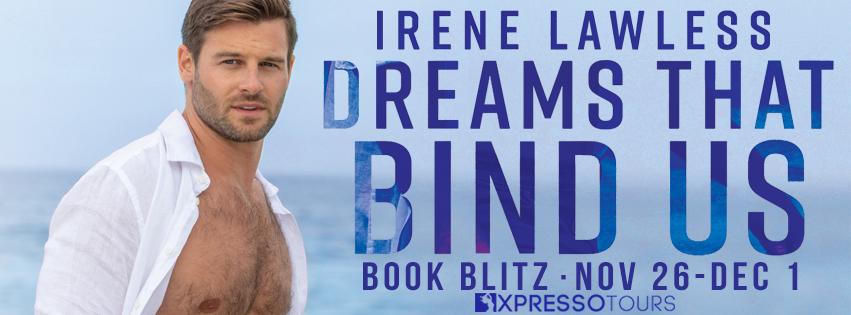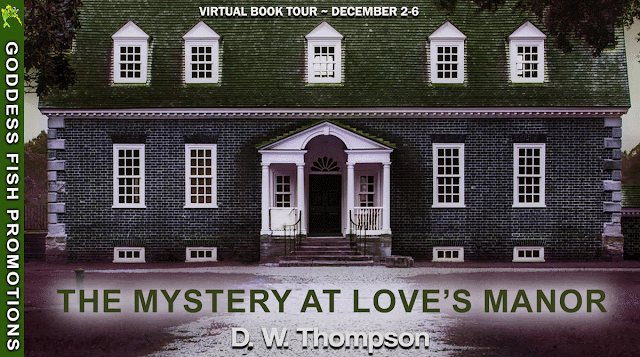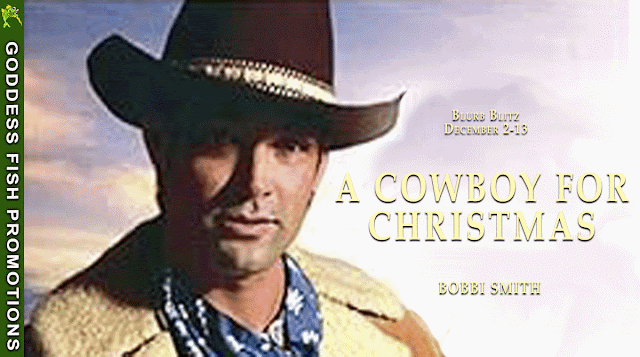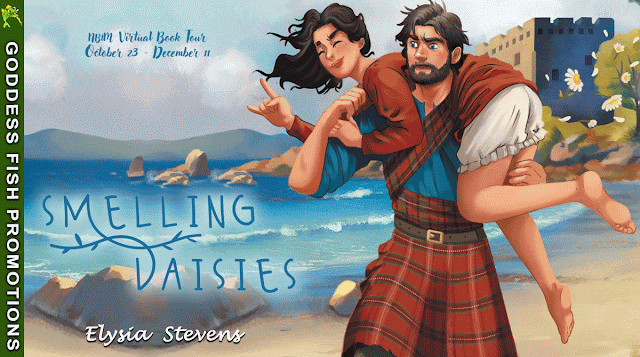Mystery
Date Published: April 1, 2022
Publisher: Stitched Smile Publications
Narrator: Victor Warren
Run Time: 10 hours, 59 minutes
"Great action, well-told, and authentic with all the nuances and spirit of small town Texas. Don't miss it." -Lone Star Literary Life Reviews
In this enigmatic follow up to his critically acclaimed debut novel The Cuts that Cure, Arthur Herbert returns to the Texas-Mexico border with this chilling mystery set amidst a small town’s bloody loss of innocence.
Amoret, Texas, 1982. Life along the border is harsh, but in a world where cultures work together to carve a living from the desert landscape, Blaine Beckett lives a life of isolation. A transplanted Boston intellectual, for twenty years locals have viewed him as a snob, a misanthrope, an outsider. He seems content to stand apart until one night when he vanishes into thin air amid signs of foul play.
Noah Grady, the town doctor, is a charming and popular good ol’ boy. He’s also a keeper of secrets, both the town’s and his own. He watches from afar as the mystery of Blaine’s disappearance unravels and rumors fly. Were the incipient cartels responsible? Was it a local with a grudge? Or did Blaine himself orchestrate his own disappearance? Then the unthinkable happens, and Noah begins to realize he’s considered a suspect.
Paced like a lit fuse and full of dizzying plot twists, The Bones of Amoret is a riveting whodunit that will keep you guessing all the way to its shocking conclusion.
Excerpt:
The day Blaine Beckett went missing, the day that started off the whole sordid, miserable chain reaction of events to follow, started off so peacefully you'd have been forgiven for thinking it was an omen for good things, that God wouldn't allow anything to go wrong on a day that had such a beautiful start to it. It was a Monday and I'd had to clear my clinic schedule to see to the day's work. I rose well before the sun and went about getting dressed and making coffee as quietly as I could to let Angelica and Miguel sleep.
Before Jimmy Wayne came to pick me up, I checked on the national news, not long enough even to sit down. I turned the volume so low I had to lean in to hear just two feet from the set. It was all over the television that somebody in Chicago had poisoned bunches of batches of Tylenol, killing a handful of people up there and now folks around the country were wetting the bed about it. That was one of the nice things about our little west Texas town back then in ‘82, things like that seemed far away, otherworldly from our home in the high desert hills.
My dogs trailed me onto the front porch, keeping me company while I waited. The two mutts would have been, let's see, about three years old at the time. Sonny Fitzgerald owned a scrap metal yard in town— later on, that'll come into the story I'm fixing to tell you— and he'd found a couple of pups beneath a clunker's chassis one morning, as bony as the metal skeleton they were huddled under. Their mama was nowhere to be found and the poor things were starving. His first instinct when he heard their pitiful mewling was to put them down right there on the spot, but something made him stop short and call me instead. One I called Rope Tail, and he grew up lovable but dumb. If brains were hog lard you couldn't have used his to grease a big skillet. But his sister, a brindle I named Maybelline, well, she was special. Thirty-eight pounds of grade-A badass and smart as a whip. Rope Tail would go on to disappear one day in '87. Coyotes got him, I suspect. Maybelline, though, lived to a ripe old age. I miss ‘em both, but her more.
Out on the porch, I took in a lungful of the crisp night air. That deep, cleansing breath would have sent me into a coughing fit a few months prior, but it invigorated me that morning since I'd walked away from the cancer-stick habit two months before on my forty-fourth birthday.
In my rocking chair, I sipped coffee while Rope Tail dozed with his chin on my boot, his cheeks sucking in and billowing out in a sleepy cadence. Off to my right, high in the night sky a ring of stage lights lit up a water tower with the name "AMORET" painted on the tank's gunmetal-gray plates in a looping cursive, like the title sequence in a black and white movie.
It was still dark when Jimmy Wayne Hickerson pulled up to my curb in our custom panel truck. In our teens his features had been more pretty than handsome, with long lashes that made girls swoon. But a lifetime in the desert winds had carved lines in his once-delicate face. Jimmy Wayne was an interesting man. He lived his years convinced the moon landing had been faked but alien abductions were real.
"Mornin' Doc."
"Mornin'."
"You ready?"
"I been ready."
I poured him a coffee to go while he twirled the key chain around his finger, then we loaded up and headed through the empty streets toward Shy Mike's place. We’d put a rebuilt engine in the truck two months before— the old motor couldn’t outrun a fat man— and Jimmy Wayne was still getting to know it, babying it along through the darkness. We'd made that run many times, so I didn't have to remind him to take the long way, skirting the edges where town met the wide expanse of the caldera and the sweep of our headlights picked up scrub brush and boulders.
Say, ma’am, do you have enough tapes for that little recorder of yours? Telling this'll take a while. Really? "Digital"? Can I see it for a second?
Well, signs and wonders, isn't that something. Man lives to be eighty-four years old, you get to thinking you've seen it all, then something else comes along to prove you wrong.
I have to admit I was surprised when you called from that El Paso newspaper wanting to write something about the fortieth anniversary of all that sadness we had with the Becketts. Lord, forty years. Seems like it was yesterday.
I guess I can understand why you’d want to talk to me, hip-deep in all that business as I was. Plus, I think it’s fair to say I’ve lived a life more interesting than most. I practiced medicine here in Amoret for forty-two years, even making house calls until around the time they got bin Laden. And I watched the border change from a peaceful hunk of desert where people got along, saying live and let live, into the goddamn war zone it is now.
I know you didn't come here to talk about this, but I got shot down once in Viet Nam when the Huey I was riding in took a round to the rotor. Another time when I was taking a trail to Bien Thoc through what was supposed to be safe territory, I stopped to answer nature's call when three VC passed by within twenty feet of where I was squatting against a tree. There was the time it fell to me to bag up the remains of a Buddhist monk after he immolated himself to protest the war, and I delivered three hundred and sixteen babies into this world. Most of ‘em brown or yellow, but still. Should you have a mind to hear any of those stories after we're through talking about Amoret and the Becketts, just say so.
Shit, where was I? My mind wanders so. If you really want to write down this story for your paper like you say, you're gonna have to get used to my digressions, which you'll soon enough come to see is another word for my bullshit.
Pulling up to Shy Mike Culverson's trailer, we parked next to an umbrella clothesline and tapped the horn, letting the truck idle to keep the cab warm against the mild October chill. He appeared in the doorway, yawning as he tilted his mesh ball cap back and scratched his shaggy widow's peak. A simple man, Shy Mike was uneducated but smart, unread but capable, and so honest you could play poker with him over the phone.
Audra, his pear-shaped wife, stood just inside, a fuzzy-at-the-edges grayed-out shape behind the mesh screen door. Squinting against the glare of the headlights, she clutched her terry cloth robe closed at the neck and poked her head out, turtle-like, to hand him a plaid thermos and give him a kiss before waving at Jimmy Wayne and me with a smile.
Clutching the handrail, Shy Mike threw a long shadow as he eased his way down the three plank steps, lowering his gimp leg with its immobile knee onto the step below before hitching his weight down on his good leg. Despite only being in his late thirties, he hobbled like an old man. It'd been a decade since he had a promising career as a professional bull rider cut short at a rodeo in Broken Bow, Oklahoma, when his spur got tangled in a flank strap as he was bucked off, leaving him tethered to the enraged animal by one heel and turning his knee into a swivel.
"It was like bein' in the middle of a goddamn blender," he told me afterward as he lay in his hospital bed recuperating from his first surgery. It took only seven seconds for the rodeo clowns to cut him loose— I timed it once, years later when I discovered a video of the ride— but it seemed an eternity watching it in real time. Despite three surgeries the leg never healed right. He was stoic about it, though, I'll give him that. Accepting, even.
We waited patiently while he hoisted himself onto the running board and dropped onto the bench seat next to me. Then he swiveled his bum leg in, fussing with it until he got it situated, like a mother smoothing down her boy’s cowlick for a picture.
"Mornin', Jimmy Wayne. Doc." We nodded back as he placed a pinch of tobacco in his lip and poured coffee into the thermos’ screw-top cup.
"Trade you a spit cup for a pinch," Jimmy Wayne said, pointing to a styrofoam cup in the holder. Wordlessly, Shy Mike passed the tin across and both men took turns sipping coffee with one hand and spitting tobacco juice in the community cup with the other. The thought of what that must have tasted like always made me grimace.
"Eleven souls. I got that right?" Shy Mike asked.
"Yup."
"Motel got set up okay?" he asked as he looked out his window at the vastness of the barial stretching off to the dark horizon. This was more to make conversation. We all knew we wouldn't have gotten this far if the motel hadn't been set up okay.
The first of the day's light crept up as Jimmy Wayne pointed the rig due south down a fifty-mile stretch of two-lane asphalt between Marfa and the Rio Grande that was as desolate then as it is now. That piece of the Chihuahua Desert was a bad place to get in trouble— back then, the staties didn't mandate a trooper drive it twice a day looking for folks in distress like they do these days— but that didn't detract from its wild beauty.
If you had a mind to pull over and get out to walk the chapparal, wandering among the yucca with their delicate white blossoms and the nopal cactus with their fat, fleshy leaves; the spiny sotol bushes, the caprock mesas and limestone shelves and stands of cotton wood trees, you didn't have to go far to realize you were looking at the same view the Comanches had back when. I can't speak for others, but it never failed to give me a reverent feeling. I'd already seen my share of man's inhumanity to man by then in my life— and trust me, I'm going to tell you about more— but that pristine desert landscape always seemed to cancel all that out. At least it did for me. Still does.
An hour later, the highway ended in a dusty "T" at an isolated spot facing the Rio Grande. Along the shoreline, thick bulrushes framed the pretty green-grey water as it runs whenever the country out here’s been a week or more without rain. While showers are always welcome ‘round these parts, they turn the river water a swollen, ugly brown for a while. But on that morning, there were ripples visible over the gravel sand bars. Long beards of slimy rock moss waved gently in the current, and the sunlight glinted off the water like someone’d spilled a new bag of nickels across the surface.
I'd have liked to take a minute, but my companions weren’t contemplative men. Jimmy Wayne barely slowed the panel truck as he took a left to follow 170 as it paralleled the river, so close we never lost sight of it.
Shortly, we topped a rise and got our first glimpse of the Chisos Mountains squatting low on the horizon, a sight we used as our landmark. Jimmy Wayne checked his mirrors as he decelerated, then pulled onto the shoulder at the highway's crest. He killed the engine and got out to stretch before popping the hood. Softly whistling, he propped it with the folding support rod from the engine compartment's liner. The hot motor ticked as it cooled.
Shy Mike fetched the binoculars from the glove box and tossed the strap around his neck where they swung like a pendulum as he swiveled and did his little hop-step to reclaim the ground. He exhaled a fog onto the lenses and wiped them with the tail of his shirt as he hobbled around the front of the truck and straddled the solid yellow stripes.
That spot had a view of the road for a mile and a half in both directions, the reason it’d been chosen. Shy Mike glassed the empty highway, then lowered the binoculars and spat. Wiping his chin with his Carhartt jacket's sleeve, he looked at Jimmy Wayne and me across the open engine compartment and nodded.
I walked to the shoulder's edge where it dropped off to a short escarpment thick with bristly, crimson-flowered ocotillo. Nature's sounds crept out like they'd been in hiding: the burbling of the river at the end of the declivity, the trilling and chirring of insects in the thick vegetation, the breeze rustling through the cane, the sound of grit when Jimmy Wayne's boots turned on concrete.
Wetting my lips, I made an "OK" sign with my left hand and tucked my lips over my teeth. Pushing my tongue back, I emitted a commanding whistle toward the river, strong and clear, rising in inflection at the end. It pierced the desert air, cutting across the pale river plain before echoing off a shale bluff a few hundred yards away.
Nothing moved. The scene below us lay still as a portrait for a moment, and I felt a brief rumble of concern before I caught movement to my left. A young Mexican, short and muscular, stood up from behind a dense huddle of creosote bush fifty yards away and shifted his light backpack before waving. His toothy grin shone through a thick beard, causing me to smile.
He said something over his shoulder, and suddenly the underbrush was alive with activity. Young men and women, all brown-skinned with dirty work clothes and exhausted, pensive faces stood up from hiding places among the desert scrub. I did a quick head count: eleven, not counting my bearded friend Chebo.
"Venga, venga," Chebo urged the group onward, up through the thicket toward the asphalt, twelve miles of hard yards coming to an end. After walking through the night, they looked numb from fear and fatigue.
They fell in single file behind their guide. Chebo picked his way forward along a serpentine path through the thicket, generating a steady stream of inaudible chatter.
While most of the group trudged behind Chebo with their heads down and mindful of their footing, the last person in line shuffled along staring in our direction, not looking where she was going. A slight woman, she appeared dazed, and as the rest of the group advanced, she lagged behind with her head up and eyes locked on the truck. Zombie-like, she scuffed her feet forward, arms dangling limply by her sides until she stumbled on the uneven ground and fell to her knees. She managed to get to her feet, but once upright her eyes stayed fixed on the vehicle like a lost sailor who’d suddenly located the North Star. Then, unnoticed by the group, she inexplicably peeled off at a tangent from their path, blazing her own trail through the underbrush on a beeline for the truck.
Her track took her ten feet from the group's conga line, then fifteen, then twenty. The brambles on her path became thicker. She tried to push through, eyes still up and unwavering as she willed herself forward, throwing one foot in front of the other with a shambling, Frankenstein gait.
The thorny vines clawed and scratched at her, yet she still churned forward robotically until eventually the underbrush won out. When the scrub became an impassable wall, she seemed to realize her predicament, but by that point her exhausted body and mind failed her. Unable to go forward, too fatigued to turn back, she went limp, without even the reserves to call for help, the sharp vines suspending her like a marionette.
I shouted at her, "¡No se muevea, no se muevea! ¡Le voy a ayudar!" Chebo had almost reached the highway’s asphalt when he heard me, and for the first time turned to see the straggler. I waved him off and made my way down the slope, then when the thorny scrub got too thick, faced backwards and folded my arms to push through to reach her.
Up close she seemed brittle, with buck teeth and wiry hair, pipe cleaner arms and sandals held together by duct tape. As I stripped away the brambles, her scratched face and glassy eyes drifted toward me, then turned back to rest on the matted spikey runners, unable to help me help her. I felt like I was releasing a rabbit from a snare.
Once I had her free, I hoisted her and pulled her in close to shield her bony frame as best I could, then waded backward up the slope as thorns clawed at me. Eventually the spiked vines thinned, and I could face forward again before taking the last few steps onto the pavement at a trot and gently depositing her on her feet. She stood stock still for a few moments, then shambled in the direction of the truck once again without acknowledging me. I followed, picking thorns from my hands and sucking at the worst of the scratches.
The rest of the immigrants surrounded Jimmy Wayne at the back of the truck. He rolled up the cargo bay's sliding door and gestured with a smile toward two large coolers bungeed to the floor. "Tenemos comida y agua aqui amigos. No se preocupen, todo va a estar bien." Shy Mike continued watching the highway for any last-minute approaching vehicles.
Chebo approached me with a look of concern, thrusting his chin in the young girl's direction. “She okay?”
I shrugged. "Dunno yet, she's pretty loopy right now. Probably just dehydrated. I'll give her a good once-over at the motel."
"That's going to have to wait," Chebo said. "I need you to come with me back onto the trail a few miles." He reached into the cargo bay where we kept supplies and rummaged.
"I thought there were eleven today?"
Without looking back at me, he said, "There were. Are."
"So what's going on?"
"I’ll tell you on the way." He pulled two bottles of water, some candy bars, then a collapsible stretcher from the stack of supplies. "Trust me, we need to get moving."
I shrugged. "Fair enough.” I called out to Shy Mike and Jimmy Wayne as they loaded up the group, “Chebo says me and him gotta head back up the trail for something. Y'all get these folks to the motel. Do me a favor and really push the fluids on that señorita I had to fish outta the thicket, would you? Once y'all dropped everybody off and got 'em settled, head back in this direction and wait for us right here."
They nodded and turned away as Chebo and I set off back into that lawless landscape.
Forty-five minutes later, we stood over the object of Chebo's concern. At the bottom of a limestone bluff on a broad wash of gravel lay an unconscious Mexican. With a thin beard and shaved head, he sported a tattoo of a spider web on the left side of his scalp that, under normal circumstances, would have made him appear menacing. At that moment, though, with his lips cracked and tongue swollen, his blistered face appeared vulnerable, almost pathetic. The severity of his sunburn made his age difficult to guess, but I put him in his mid-twenties.
The man's slight frame gave the illusion the massive pack on his back wore him rather than the other way around. I put him at about one hundred forty pounds, while the enormous pack must have weighed sixty. I didn't see any water on him.
It looked clear what had happened. Too much weight. Not enough water. Too much desert.
Shaking my head, I squatted and unzipped the pack's top compartment, knowing what I'd find. Under the nylon flap, crammed to the gills, lay packet after packet of white powder, bound in cellophane and duct-taped into kilos.
About the Author
Arthur Herbert was born and raised in small town Texas. He worked on offshore oil rigs, as a bartender, a landscaper at a trailer park, and as a social worker before going to medical school. For the last eighteen years, he’s worked as a trauma and burn surgeon, operating on all ages of injured patients. He continues to run a thriving practice in New Orleans where he lives with his wife Amy and their dogs.
Contact Links
Twitter: @herbertwriter
Purchase Link

















































































































0 comments:
Post a Comment